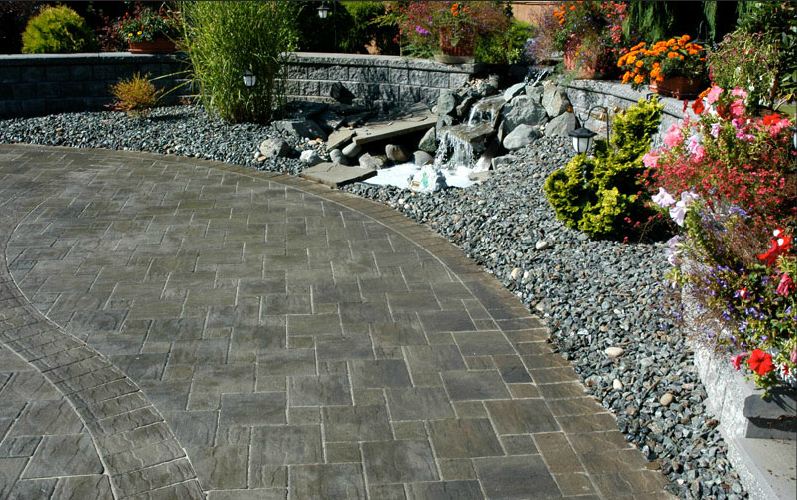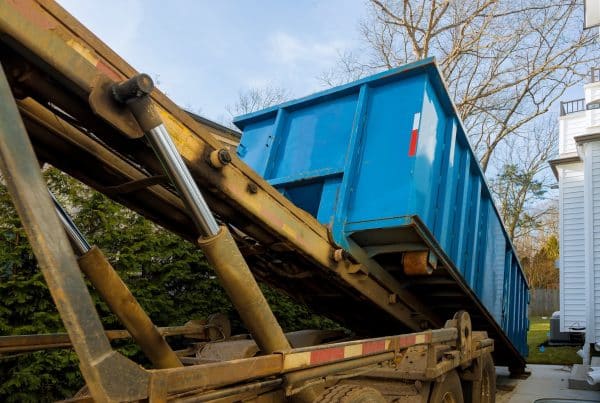Whether you are renovating your driveway, building a new barbecue area or extending your patio space, choosing the right material for the hardscape of your outdoor space is important. There are countless options available in the market for pavers, out of which concrete and natural stone pavers are among the most preferred options. But, which one do you choose for your project?
In this article, we look at both concrete and natural stone pavers and compare the two to help you decide which is the best fit for your home project.
Natural Stone Pavers
Natural Stone Pavers are quarried from the Earth i.e., they are extracted from the Earth as huge stone blocks. They are later cut into smaller blocks or tiles, which gives them the durability to withstand heavy foot traffic or vehicular traffic with ease. No two stones look alike, which gives your outdoors a unique and distinct look. Even when exposed to harsh weather elements, natural stone pavers rarely crack. If they do, they are easy to repair or replace. Plus, they are easy to install as they don’t require any grading or backfilling.
Concrete Pavers
As with many other paver types, concrete pavers come with an extensive range of colors, shapes, textures and sizes to choose from. They are blessed with versatility and can be used in patios, concrete driveways, pathways, outdoor kitchens, pool areas, and everything in between. They are a highly popular choice for both commercial and residential projects due to their rustic charm and authenticity. If you are environmentally conscious, concrete pavers are a good fit as they are mostly locally manufactured and sourced. This reduces the carbon footprint to reach you and also helps reduce the transport cost of your project. What’s not to love?
Key Factors to Help You Choose Between Concrete Pavers and Natural Stone Pavers
Weight
Where do you wish to install the pavers? Your driveway? Or patio? That can help you choose the right material. Your driveway is exposed to vehicular traffic and needs to withstand more weight daily. It needs to be extremely strong, plus if it’s sloping, it may require an interlocking paver for additional strength. Both concrete and natural stone pavers are of superior quality to get the work done. Just ensure you use a 50mm paver that doesn’t chip or crack under the weight of the vehicles. Have you also had a chance to check out some amazing Travertine Pavers?
Scratch Resistance
Concrete pavers have a one-up on natural stone pavers when it comes to a scratch-resistant surface. Concrete is a resilient material, whereas natural stone is more susceptible to wear and tear in comparison. Depending on the area you are building or renovating, you can choose the best option for your home. For example, if it’s a pathway, you don’t want it to have scratches from your kid’s scooters. Concrete would be a better option in that case.
Drainage
If you are considering paving your pool area or another outdoor space that is prone to water pooling, drainage becomes a pivotal factor to account for. When the element of water comes into play, you know it should be able to run off from the tiles on its own instead of seeping inside and causing damage. Permeable concrete pavers can be a good choice in this case, although the cost may be a little heavier on the pockets. But, it’s a worthy investment in the long run, ensuring your home is protected if it rains or there’s water pooling for any reason.
Cost
Compared to concrete pavers, natural stone pavers are more expensive. This is because they are ‘harvested’ from the Earth and their extraction can have an impact on the cost. Even their installation costs can be higher as opposed to concrete pavers. If you don’t have affordability concerns and need a distinct look for your outdoor space that can’t be replicated, natural stone pavers are a unique choice. Their high cost matches their top-notch quality, which further ensures their longevity. While inexpensive pavers may seem like a good option upfront, their lifespans may be less, too and you could end up spending more on the upkeep. So, choose wisely.
Timeless Look
Both concrete and natural stone pavers offer options galore in the best of colors, shapes, patterns, sizes and textures. With concrete pavers, you get uniform-sized bricks or tiles, which gives you the flexibility to build intricate repeating patterns. These include the popular basket weave, checkerboard and herringbone patterns. Similarly, natural stone pavers come in various colors, sizes and shapes while allowing you to add a degree of personalization to your outdoor space to create a timeless look.
Wrapping Up
For any home building or renovation project, the type of pavers you choose will depend on the purpose, location and lifestyle, among other factors. Our goal is to help you decide the best choice for a better living experience. If budget is a concern for you or you are paving a large area, concrete pavers can work excellently. They involve a lower monetary consideration and are sturdy for many years to come. On the other hand, if money isn’t a constraint for you, natural stone pavers can bring more luxury to your home and add curb appeal to your property. They require little to no maintenance and age very well.
In case of more questions, feel free to give us a call.








